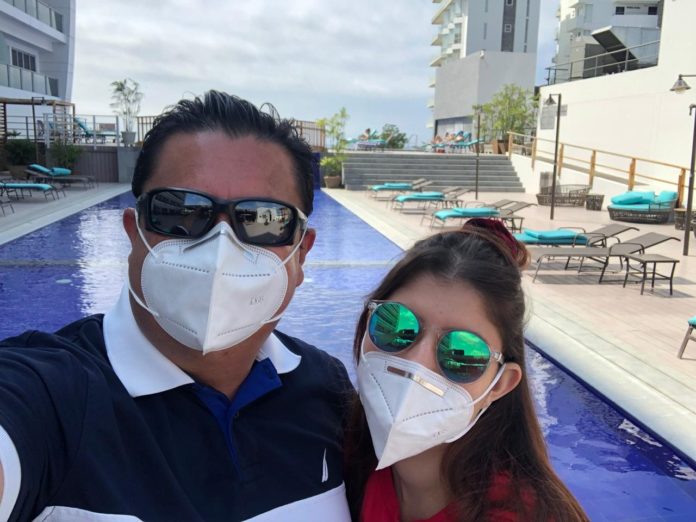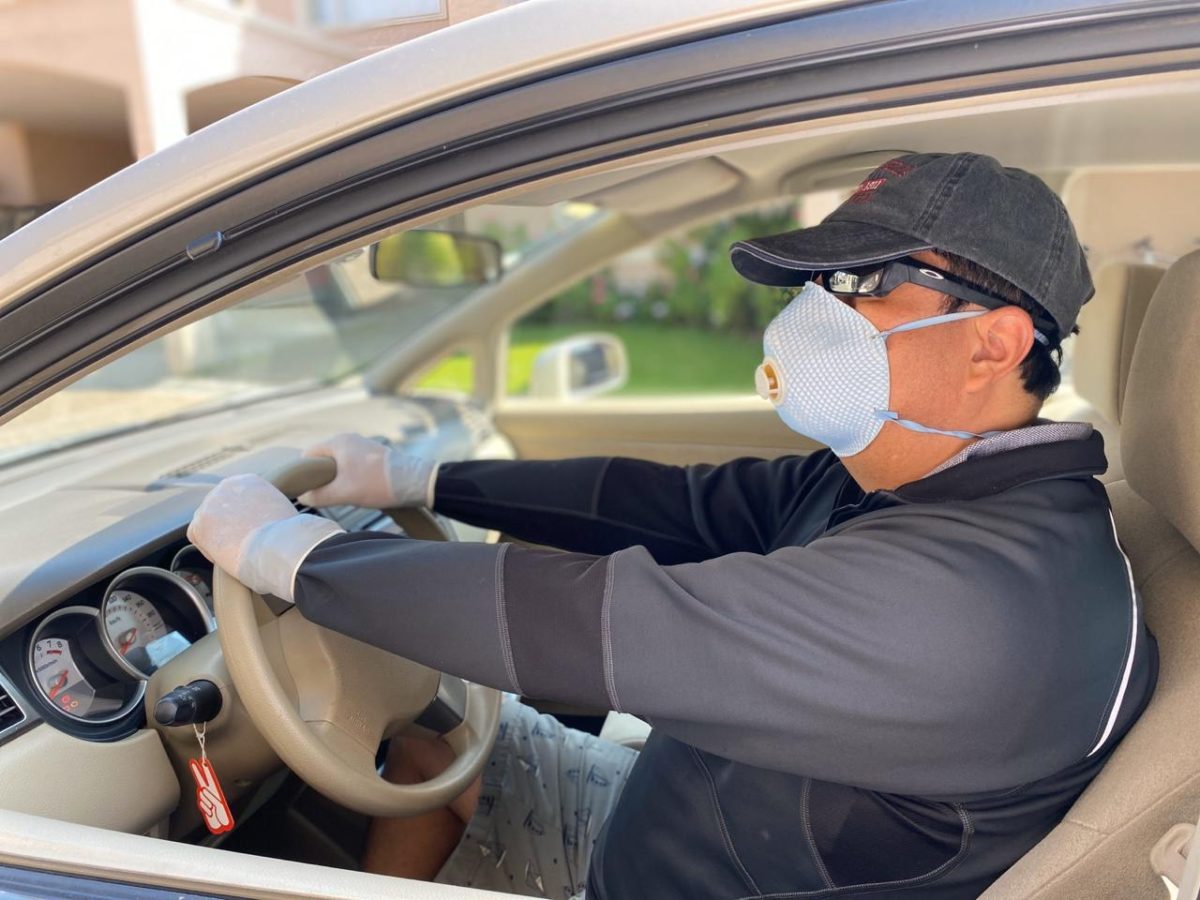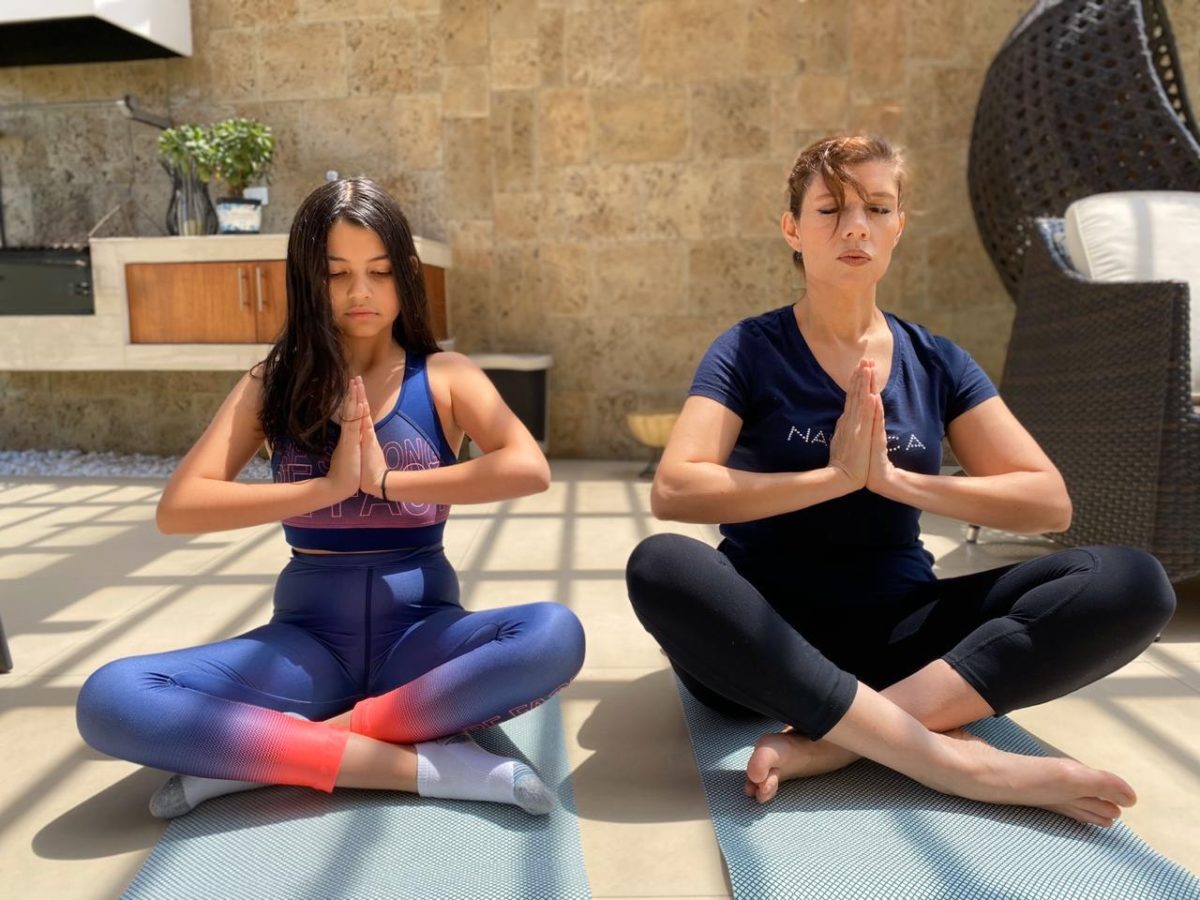

On March 17, I booked an emergency flight back home to Ecuador. The government was closing the borders before midnight the next day and the only thing on my mind was how scared my family felt.
The next day, I landed in Ecuador at 4:30 a.m. and the airport was packed. I was covered in sweat from the mask and could barely keep my eyes open.
Walking to the immigration line, I saw the airport staff in white hazmat suits with goggles and masks, looking like movie aliens. They took our temperature and handed out questionnaires, asking about our condition. I was told to isolate for 14 days and contact the ministry of health immediately if I presented any symptoms,
Two days later, Ecuador recorded 367 cases of COVID-19. The government took immediate action by declaring a state of emergency, forcing Ecuadorians to stay home indefinitely. We followed the COVID-19 traffic light system, where red light means no cars can circulate unless they have a safety pass.
Only one member of each family could leave to get the essentials such as food and medicine. My dad was the only one who went and he was required to wear his mask and gloves at all times. Even with all that protection, I worried every time he left the house. I didn’t want him to get sick or worse, watch him die.

We were all frightened. We didn’t know much about how the virus affects people, but we knew the hospitals lacked the medicine and equipment they needed. My mom took no chances. Every time my dad came back, she’d wash his clothes twice and asked him to shower.
By April, Guayaquil, the largest city in Ecuador, recorded the largest amount of infections and lethal cases at 10,417 due to people’s ignorance and government corruption.
There weren’t enough hospital beds, doctors and medicine. Death was walking on the sidewalks of Guayaquil. Corpses just laid on the ground rotting with no one to claim them.
This broke my heart. It was inhumane and I could only just sit and watch my people die. At the end of April, Guayaquil had more COVID-19 deaths than all deaths in 2019 in Guayaquil.
The health care system was in chaos. Minor diseases or complications weren’t treated properly. When my cousin broke her wrist, it took hours before receiving medical attention. The government corruption was unacceptable. It profited from inflated medical prices while some people didn’t have enough money to feed their families.
On April 20, the price of petroleum dropped below zero. This was catastrophic for Ecuador since our economy depends on petroleum importations. We use American currency in our country. My dad told me if we switch the currency back to our own, the value of our money will drop. I wouldn’t be able to go back to university since we’d be unable to afford it.
The lower class was the most affected. We had to fire our domestic worker due to the pandemic, but we re-hired her so she could feed her little girl.
In June, conditions improved and we switched to yellow in the traffic light system. During the summer, restrictions slowly lifted. Public spaces were allowed half capacity and by June 20, Ecuador registered 50,000 COVID-19 cases compared to the original 367.
By July, the “new normal” arrived and new medical supplies and tests were brought to Ecuador, decreasing contamination.


After four months in lockdown, my mental health wasn’t at its best. I had anxiety attacks and everything became overwhelming but talking to friends helped me feel better. I refused to feel bummed and started working on myself. Drawing and exercising kept my sanity.
In September, the state of emergency ended. These months were filled with death and tragedy, but my family kept me strong, safe and healthy.
I pray for better days in the future. I’ve started online classes but being 5,000 kilometres away from university isn’t the best way to learn. At least I can do it with the support of my family and tell the story of how Ecuadorians fought back against the pandemic.
